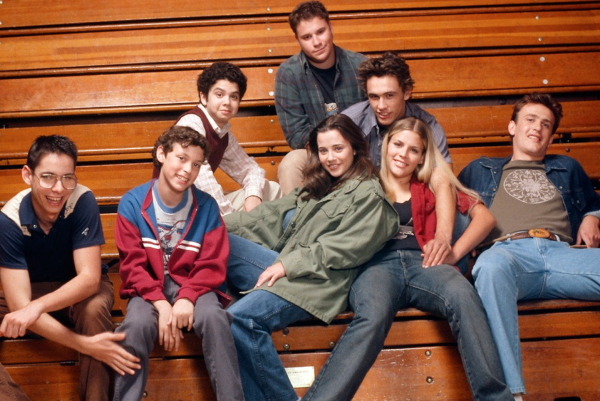Algorithms Push Social Media Usage to Unforseen Levels
There is something dark lurking within the fabrications of modern social networking, and when the minds behind the biggest platforms in the world admit there’s a problem, it’s never a good sign for what’s to come.
Every day, the world grows more and more dependent on technology and online platforms. Social media notifies, informs and communicates messages with images, articles, videos and more every second. Breaking news is instantaneous — you can search for virtually any person on the planet — and much of the world’s information is located just at the edge of your fingertips. Most importantly, social media keeps the world connected in ways that were not possible just a decade ago, whether it’s through instant messaging, video calls or comment sections.
However, this connection comes with control. Social media platforms have established a firm grip over society’s view of themselves and the rest of the world. Users develop addictions to these platforms, endlessly scrolling through calculated algorithms specially designed to adapt to their needs. Social media also connects directly to the spread of fake news and deteriorating mental health.
The newly released Netflix documentary “The Social Dilemma” opens with a simple quote from the esteemed philosopher Sophocles: “Nothing vast enters the life of mortals without a curse.” One may say that social media fits this quote perfectly. Social media offers endless benefits and helpful information to the world’s population, yet it also causes some serious issues in society today.
Big tech companies have absolutely exploded over the past decade. Companies including Facebook, Instagram, Twitter, TikTok and Snapchat redefined internet usage, providing users with endless ways to communicate with one another and spread massive amounts of information.
However, the rise in social media usage has also led to a significant increase in teenage depression and suicide. According to “The Social Dilemma,” Generation Z is the first generation to be directly impacted by social media, as many of today’s teenagers are introduced to it at the mere age of 10. Studies show that hospitalizations for teenage girls aged 15-19 and 10-14 have shot up 62% and 189%, respectively, since the early 2010s. Suicide numbers for these two groups also increased by 70% and 151%, which shows a troubling pattern. These numbers directly correlate to the sudden rise in social media, which started its domination during the early 2010s.
But why does social media have such a strong influence on not just our youth but all of its users? One troubling aspect involves the platforms’ algorithms and how they impact each person in a carefully calculated, personalized way.
Algorithms always want to show the “next best thing” to its user. The computers used today — from smartphones to laptops to even smartwatches — almost have a mind of their own. They use a technique called “machine learning” to examine which content users often look at most. The computers calculate what’s “perfect” for the user and organize their social media feeds based upon this information. However, there is a hidden agenda behind this. Developers design the algorithms to appeal to the users’ likes, which keeps them using the product. It’s an economic agenda: Users continue their endless scroll, hoping to find the “next big thing” that satisfies their desires. Therefore, the product continues to be used, which is what the designers want.
However, the algorithms often show off a false truth. They want to show the user whatever they want to see, which usually takes the form of unrealistic expectations and ideologies. Thanks to this, fake news or biased articles run rampant online.
There are multiple examples of the algorithm directly manipulating its users for its commercial interest. Google designs an individual’s search engine based upon the area where they live, rather than giving differing search opportunities the same chance to appear. This can lead to a massive spread of misinformation, as one user may assume that everyone else shares their same ideology that may not even be completely accurate. Even worse, the rise of social media has also led to an increase in political polarization. The left and the right villainize one another and see their views as the truth, leading to a massive division between both parties.
Additionally, Instagram fills its feeds with often photoshopped images of models, forming an unrealistic expectation of beauty. Younger users, like the teenage girls mentioned earlier, may see these and assume that they need to mimic these images to achieve a true sense of beauty. This often leads to severe body dysmorphia, extreme self-consciousness and eating disorders.
Despite these issues, users still gobble up the media, and their dependence on it remains understandable. Social media has everyone hooked, and many don’t even realize how much it weakens their self-confidence.
Personally, I loved using social media throughout high school, but upon arriving at college, I realized that my sense of personal value depended on the responses I received online. I sought validation through online messaging, whether it involved maintaining Snapstreaks on Snapchat or counting the number of likes and comments on an Instagram post. Whenever my friends left me on “delivered” or I didn’t receive the number of likes I had hoped for, my self-confidence would drop immensely. I never felt good enough to appease the crowd, leading to months of dwindling self-confidence. I never linked this to my overuse of social media.
I decided to shift my attention away from social media to reality in order to take care of my mental state. I knew I couldn’t drop social media completely, but I figured out ways to step away from it whenever it began stressing me out. I downloaded the app “Forest,” which allows the user to set a timer and then starts to grow a tree. If you leave the app before the timer is done, the tree dies … I use it daily, especially when I’m doing homework. Whenever I feel the weight of social pressure, I also put my phone down and start growing a tree. Whether it’s fifteen minutes or two hours, the break makes a huge difference, as I find other things to do instead of endlessly scrolling, hoping for responses that will never come.
Social media platforms have a huge influence on life as we know it. However, the world needs to recognize when an abundance of the internet is too much. If we can develop a healthy balance between online and offline, the algorithms will no longer control us.








































































































































































































